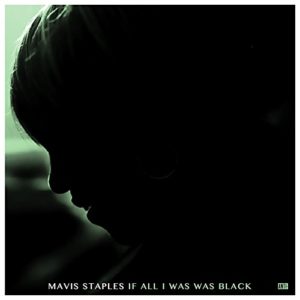Marketplace
2017 Anti- Records PRESSING
- Catalog Number 87551-1
- Release Year 2017
- Vinyl Mastering Engineer Bob Ludwig
- Jacket Style Single
When listening to this album I think of this band or music:
A soul and gospel legend, Mavis Staples has earned the right to be free of direct comparisons to other artists. Her sound—much of it contained in her rich-with-experience voice—is uniquely her own, with a tone built around a determined rasp and optimistic lilt. Here, however, her on-and-off producing partner Jeff Tweedy works to recall the spare albeit pointed arrangements of her vintage recordings with the Staple Singers. He gives the songs a naked guitar sound that owes a debt to Staples’ late father, Pops, as well as a pared-down take on the gospel-blues songbook.
I would listen to this album while:
Any time one feels the absence of hope. Too much of modern life can stress and divide, and Staples aims to heal. With a quiet and restrained tone, the album seeks to reassure rather than ignite a pep rally.
Music from this album would be a great soundtrack to:
Considering the vocalist’s work with the Staple Singers helped soundtrack the Civil Rights movement of the 1960s, If All I Was Was Black serves as a reminder that the job remains unfinished. Gospel undertones indicate Staples continues to look to a higher power for guidance. But there are also hints of frustration throughout. Perseverance, then, emerges as the overriding feeling. A recent film that embodies such a tone is Hidden Figures. The true story of three African-American women instrumental to the development of the space program, the movie provides the requisite uplift in that it focuses on the strength of the women rather than their struggles.
Since linking with Los Angeles-based indie label Anti for 2007’s We’ll Never Turn Back, Staples has enjoyed a resurgence. It’s a shame she even needed one. Over the decades, Staples crossed paths with everyone from Martin Luther King Jr. to Bob Dylan to Prince and Barack Obama. By linking her with taste-making producers such as composer/songwriter Ry Cooder and Wilco’s Tweedy, Anti helped give Staples a modern sheen and sought to connect the dots between her work in the Civil Rights era with modern culture.
With If All I Was Was Black, her fifth album for Anti, Staples offers us her most fiery and topical release in decades. No longer is she interpreting the songs of others. The 11 tunes here, written by Tweedy, witness Staples giving voice to the Black Lives Matter movement and life under a Trump presidency. What she sees is an America at its most divided. “Look around at our country,” she sings on “Build a Bridge,” “at the people we don’t ever see.” Complemented with a bluesy, matter-of-fact piano and casually resolute guitar, Staples, combined with a small church-ready choir, adopts a won’t-take-no-for-an-answer attitude for a song about extending a hand.
Elsewhere, she quotes Michelle Obama’s famed Democratic National Convention speech on “We Go High,” which delivers its confident attitude via an elastic, funky bass and slippery, tone-shifting guitars. She also turns slightly saucy on the urban blues strut of “Who Told You That,” a sermon about speaking out when injustices occur.
Then there’s the revelation of “Try Harder,” which pushes Staples into new territory. “There’s evil in the world, and there’s evil in me,” she sings in her most direct and powerful voice. Considering Staples has almost always sided with positivity, the phrase proves striking, and Tweedy supplies a sharp, fuzzed-out electric guitar to illustrate the shades of gray. Ultimately, the song acknowledges that in order to make peace with others, we must make peace with ourselves. “Don’t do me no good to pretend, don’t do me no good to give in,” she snaps.
Tweedy’s production fits the material, yet lacks for raw bite that might have further enhanced the edginess of the music. Staples’ voice is well-centered and the instruments amply spaced apart, even if by no means audiophile-caliber. The record and Staples deserve better than the dull, uninspired jacket and cover-art reproduction.
If All I Was Was Black


 3.5
3.5